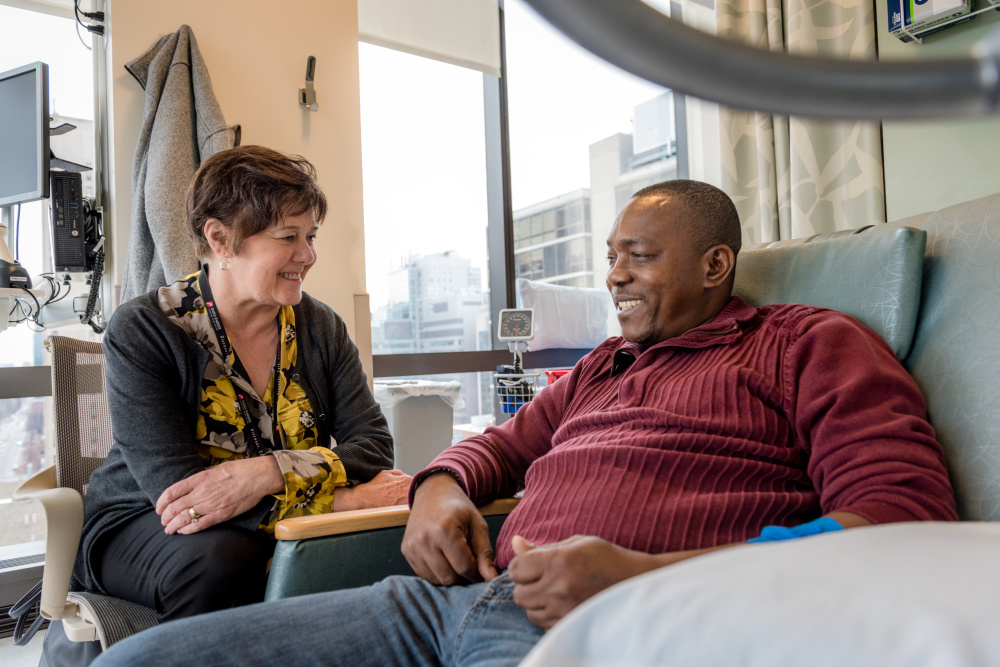
By Allison DiBiaso, LICSW
A cancer diagnosis can fundamentally alter a person’s life, and it can often add an unexpected burden: stigma. Lung cancer patients are some of the people who experience this stigma most, as others may look at or treat them differently because of their diagnosis. In some cases, the patients themselves may even start to view themselves differently.
As a social worker within Dana-Farber’s Lowe Center for Thoracic Oncology, I see this stigma come in many forms for lung cancer patients: Patients who are or were smokers often blame themselves for developing the disease, and those who haven’t smoked may feel ashamed or guilty. One of my former patients even made the decision to tell her family and friends that she had breast cancer instead of lung cancer.
But there’s no reason patients should feel ashamed, because all you need is a set of lungs to develop lung cancer. While quitting smoking can help reduce your risk for lung and other cancers, there are many other risk factors – from air pollution to asbestos to genetic predisposition. And then there are some patients who seem to develop lung cancer simply due to bad luck.

Here are five tips I give my patients for combatting the effects of lung cancer stigma and ensuring your diagnosis does not control your life.
- Don’t blame yourself. I can’t say this enough: All you need is lungs to develop lung cancer. Many of my patients feel like they are to blame, or that they brought this disease on themselves. Cancer doesn’t discriminate, and there can be multiple reasons why people develop cancer. Blaming yourself can often take a toll on your ability to cope emotionally with your cancer treatment.
- Educate yourself, and help educate family members and friends. Ask your doctor about your type of lung cancer and learn as much as you can about the disease. If you can, try to explain your kind of lung cancer to your family members and friends so that they can understand what you are going through.
- Do things that bring you joy. It may be hard, but try not to forget about the things you love to do just because you’ve been diagnosed with cancer. It’s important to keep incorporating your hobbies, interests, and joy into your life – whatever these may be.
Read More:
- Get connected to communities and resources that can help you. Support groups, which give patients the opportunity to meet and share information and moral support, can be a great tool for regaining a sense of control over your life after a lung cancer diagnosis. Many national organizations, such as the Lung Cancer Alliance, LUNGevity, and the American Lung Association, also offer resources for patients and survivors.
- Don’t be silent. Cancer affects patients in all kinds of ways: physically, emotionally, spiritually, sexually, and more. Feel empowered to reach out to your treatment team, including social workers like myself, about any questions or concerns that you have about your treatment or how the disease is affecting your life in general. As I like to say: The mind is a beautiful thing, but it can also be a dangerous thing. It’s important to voice the thoughts that are running through your head.
Learn more about lung cancer from the Lowe Center for Thoracic Oncology at Dana-Farber.
